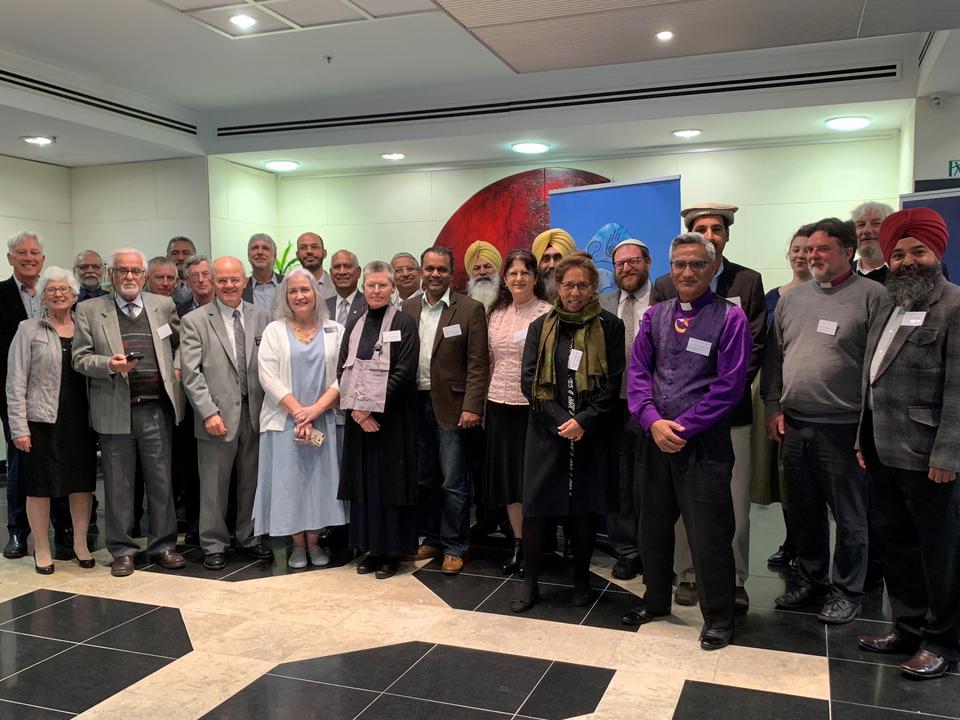The New Zealand Religious Diversity Centre held its annual National Religious Leaders Gathering 21 November 2018 at the University of Otago House, Auckland.
Many faiths were represented including: Bahá’í, Buddhism, Hinduism, Islam, Judaism, Sikhism and several Christian denominations.

The Church of Jesus Christ of Latter-day Saints was represented by Elder Ron and Sister Kathy Williams, senior missionaries who are serving as National Directors of Public Affairs for the Church.
A traditional Māori welcome, or whakatau, began the proceedings.
Discussions on religious freedoms and threats to such freedoms were led by Dr Jenny Te Paa Daniel, with robust participation from all in attendance.
Reports from Professor Paul Morris and Mr John Chote were given regarding the place of religion in public and private schools.
Jocelyn Armstrong, Chair of the Religious Diversity Centre Trust, also addressed the gathering.
"A strong feeling of brotherhood and sisterhood was experienced by all," said Elder Williams.
Consensus was reached about the need to continue meeting together to further understanding and respect for each other, and all people of faith, or of no faith.
The Church of Jesus Christ of Latter-day Saints regularly participates in interfaith gatherings and service projects benefiting communities around the world.
Last week the Deseret News published the following comments about religious freedom by President Dallin H. Oaks, First Counsellor in the First Presidency of the Church:
"Today's religious freedom debates are different than in the past. They've increased in breadth and intensity.
Religious freedom has gotten political. It's dividing people along lines different than before.
In the 1950s and 1960s, religious freedom debates were about issues like whether or not the federal government should give aid to Catholic parochial schools.
But over the years, new divisions emerged. We see people who believe in God in contests with people who don't, or people who value religion and recognize that religion holds society together in contests with people who reject this.
Fewer and fewer people believe in God. And if you don't believe in God, you don't believe in absolute right and wrong, and you don't see any benefit to society by giving a special place to religion or religious preachers or activities.
That's probably not a popular view, but it's where I come from and why I have a continuing interest in religious freedom. I care about it not just because of my position in the church, but because of my position as a citizen and as a former judge and as a believer in the law and right and wrong."
Read more at the Deseret News.